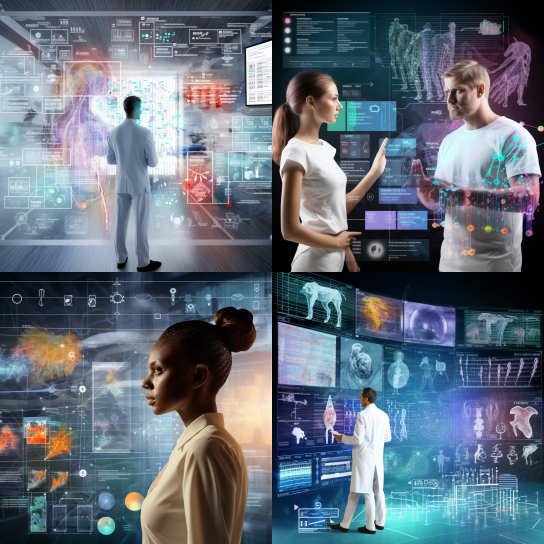How AI Works: Understanding the Core Principles
How AI Works
How AI Works: Understanding the Core Principles
How AI Works: Understanding the Core Principles
Unraveling the Magic: A Peek Inside AI’s Brain
Greetings, tech enthusiasts and curious minds! Have you ever wondered what makes Artificial Intelligence (AI) tick? How do machines learn, understand our language, and make decisions? Fear not, because today, we’re embarking on a fascinating journey through the inner workings of AI. Get ready to unravel the magic, as we explore the core principles that power this incredible technology.
Real "AI Buzz" | AI Updates | Blogs | Education
The Heart of AI: Algorithms
At the core of AI’s intelligence are algorithms – the digital recipes that guide machines on what to do. These algorithms are like sets of instructions, telling AI how to process data, recognize patterns, and make decisions. Just like a chef follows a recipe to create a delicious dish, AI follows algorithms to perform tasks.
Real-Life Analogies: Understanding Algorithms
Sorting Algorithms: Organizing Data
Imagine sorting algorithms as expert organizers. When you need to arrange a list of items from smallest to largest, sorting algorithms do the job efficiently, ensuring everything is in the right order.
Decision Trees: Making Choices
Decision trees are like interactive flowcharts. They help AI make decisions based on different conditions. It’s akin to a “Choose Your Own Adventure” book, where each decision leads to a different outcome.
The Brain Fuel: Data
Just like humans learn from experience, AI learns from data. Data acts as the fuel that powers AI’s learning process. The more diverse and abundant the data, the smarter AI becomes.
Real-Life Comparison: Learning from Books
Think of data as books in a vast library. Each book contains knowledge and experiences. AI reads these books (data) to learn and expand its understanding of the world. The more books it reads, the more knowledgeable it becomes.
The Feedback Loop: Machine Learning
Machine Learning (ML) is a subset of AI that focuses on enabling machines to learn from data and improve their performance over time. It’s like teaching a pet new tricks – the more it practices, the better it gets.
Real-Life Example: Image Recognition
Imagine training AI to recognize cats in photos. Initially, it might make mistakes, but with each corrected error (feedback), it refines its understanding. Over time, it becomes exceptionally accurate at identifying cats in various images.
Putting It All Together: AI in Action
Now that we understand the ingredients – algorithms and data – let’s see AI in action. From speech recognition in virtual assistants to predicting weather patterns and even diagnosing diseases, AI’s applications are vast and diverse.
Impactful Applications: AI Changing the World
Healthcare: Diagnosing Diseases
AI analyzes medical data to identify patterns, helping doctors diagnose diseases such as cancer more accurately and at an early stage, potentially saving lives.
Real-Life Example: Image Recognition
Finance: Fraud Detection
In the world of finance, AI algorithms sift through vast amounts of transaction data to detect unusual patterns, flagging potential fraud and ensuring secure transactions.
Read More









Leave a Reply